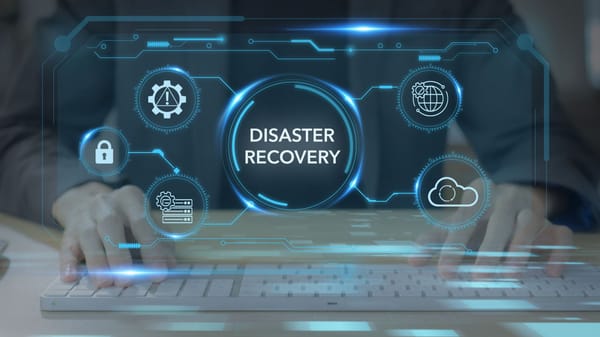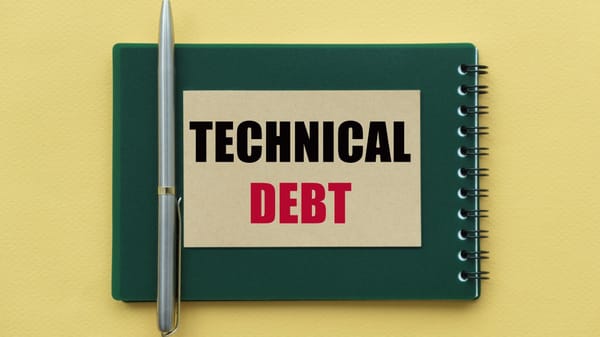What PE Firms Really Look for in SaaS Technology

If you're a founder thinking about selling your SaaS company, you've probably been told a dozen different things about what matters to buyers. Some of it's true. A lot of it is noise. The reality is that when private equity firms evaluate your technology, they aren't doing it because they want to grade your code like a computer science professor. They're doing it because your technology is the engine that's supposed to drive future growth.
That means they want to understand one thing: can this product scale, safely, and reliably, without turning into an anchor that drags returns down?
I spend my days in this exact world, running technical diligence on SaaS and tech-enabled businesses. I've seen deals fall apart over issues founders never thought mattered, and I've seen buyers pay premiums for products that were built to last. This post kicks off a series on what I'm seeing in the field - and today we'll start with the big picture of what PE firms really care about in your SaaS technology.
1. Architecture That Scales
The first question PE firms ask isn't "Is this built on the latest and greatest tech stack?" It's, "Will this architecture hold up as we double, triple, or 10x revenue?"
That usually boils down to a few things:
- Monolith vs. microservices - It's not that one is good and the other is bad. What matters is whether the architecture matches the stage of the business. A well-structured monolith can be perfectly fine for a $10M ARR company. But a tangled monolith with no boundaries? That's a nightmare to scale.
- Clear modularity - Buyers want to see separation of concerns. If every new feature touches the whole codebase, scaling velocity tanks.
- Technical debt story - Every company has debt. Buyers don't run when they see it - they run when they don't see a plan. If your team can articulate where the landmines are and how they're paying it down, that signals maturity.
The mistake founders make is thinking a rewrite into microservices automatically fixes everything. That's not what investors want. They want predictability. A codebase that's stable under load, has a roadmap for improvement, and doesn't hide scary surprises.
2. Stability and Reliability
When a PE firm evaluates your product, they're asking: "If we put more customers on this thing, will it break?"
They dig into:
- Uptime history - If your SLAs promise 99.9% uptime but you've had outages every other month, they'll find it.
- Incident response - How quickly does your team resolve issues? Do you have a real process, or does everything grind to a halt until the CTO steps in personally?
- Monitoring and logging - Buyers hate black boxes. They want to see systems in place that catch issues before customers do.
Downtime equals churn, and churn drags valuation. Reliability isn't flashy, but it often ends up being the biggest driver of trust in diligence.
3. Security
Every founder tells buyers, "Yes, we take security seriously." But diligence has a way of exposing the truth.
The common focus areas are:
- Access control hygiene - Is production access limited, or does every engineer have the keys to the kingdom?
- Data protection - Is customer data encrypted at rest and in transit? Are backups tested?
- Vulnerability management - Do you patch dependencies regularly, or are you sitting on a mountain of CVEs?
- Compliance posture - SOC 2, GDPR, HIPAA - not every framework matters for every business, but buyers want to see that you're aligned with the regulations that apply.
Security issues don't just lower valuation - they can kill deals. Nobody wants to buy a company and discover a breach three months later.
4. Product Infrastructure
Cloud infrastructure efficiency has become a major focus. A few years ago, PE firms rarely asked about it. Now it's one of the first questions.
They look at:
- Cloud spend as % of revenue - Is it reasonable, or does every new customer erode gross margin?
- Autoscaling and elasticity - Are you actually using the cloud as designed, or just renting expensive servers by the hour?
- Disaster recovery - Is there a real DR plan, or just "hope AWS never goes down"?
Inefficient infrastructure eats into EBITDA. And in a world where valuation multiples are tied to earnings, that's a direct hit to deal value.
5. The Development Lifecycle and Org Maturity
Technology isn't just code - it's the people and processes that produce it. Buyers want to know if the team can build, scale, and maintain the product long-term.
They evaluate:
- CI/CD maturity - Is deployment automated and low-risk, or does shipping require manual heroics?
- Testing culture - Is there real test coverage, or is QA basically "the customer"?
- Engineering velocity - Are features shipping regularly, or does every release take months?
- Org structure - Is the company dependent on one rockstar engineer or founder? That's a huge key-person risk.
This is where founders often underestimate diligence. PE firms don't just buy your code; they're also buying your team's ability to deliver.
6. Extensibility and the Road Ahead
Buyers aren't only thinking about today - they're thinking about the next five years. They want to know if the product can evolve with the market.
- API strategy - Is your product a closed box, or can it integrate into the broader ecosystem?
- Modularity for new features - Can new modules or services be added without breaking the old?
- Tech stack relevance - Nobody expects you to be cutting edge, but if you're stuck on a language or framework that's no longer supported, that's a problem.
Extensibility is growth insurance. It shows that the product won't box itself into a corner.
Wrapping It Up
When you zoom out, it's clear that PE firms aren't buying your technology as it exists today. They're buying confidence that your technology can support the future.
- Scalable, modular architecture
- Proven stability under load
- Real security posture
- Efficient, resilient infrastructure
- A capable, structured R&D organization
- Extensibility for growth
If you're a founder eyeing an exit, the best thing you can do is start looking at your SaaS product the same way buyers will. Where are the cracks? What would spook an investor? What story can you tell about how you're addressing it?
It's not about perfection. It's about predictability. A PE firm doesn't need your technology to be flawless. They need it to be understandable, improvable, and trustworthy enough to back with millions of dollars.
This blog series will dig into each of these areas - architecture, security, infrastructure, operations - in more detail. But now you know the big picture: what PE firms really look for in SaaS technology.
Next time, we'll look at The Top 5 Security Red Flags That Kill Deals - and why founders often don't realize they're sitting on them.




